Last Thursday the London publisher Libris brought out Erdmut Wizisla’s Walter Benjamin and Bertolt Brecht: the story of a friendship. This is an English-language edition of the book published originally by Suhrkamp. Behind that edition was a first embodiment, as its author’s doctoral thesis. The translation from thesis to book is a difficult one, and a process that is rarely resolved well. The transmutation of such a complex book from one language into another is also a difficult business. Some of the issues raised by these endeavours have been brought up, also in connection with Walter Benjamin’s writings, in two previous posts here, in August and December of last year.
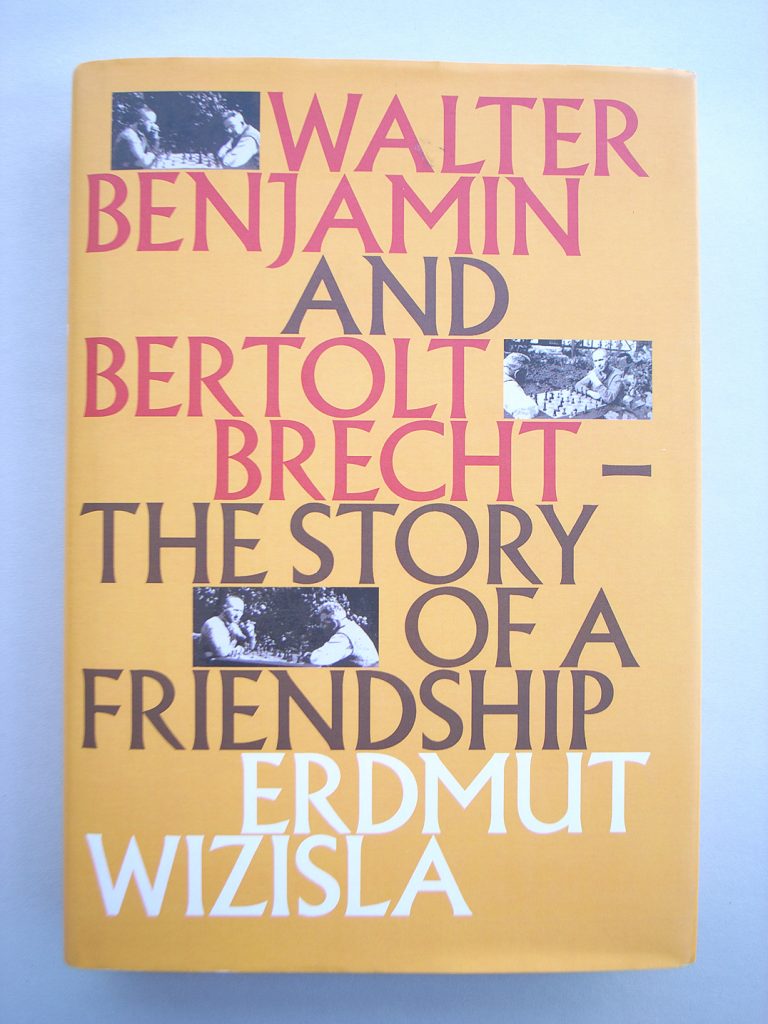
One should preface this brief look at editorial and typographic matters by saying that this is an essential book for anyone interested in these two writers. For those who had formed hardened images of them (for example, Benjamin as the precursor of advanced ‘Theory’ in literary criticism; Brecht as a monster exploiter of the people around him), this view of the two of them in dialogue is a good corrective. Both become more complex and more understandable. Wizisla is resolutely fair to both, and writes with a full understanding of history: these personal histories in those years of deepest crisis in Europe.

While the Suhrkamp edition put the thesis-text, apparently without much alteration, into its small paperback format, the Libris edition embodies a necessary rethink. And its format is relatively large (this size was suggested by the needs of a North American coedition, published by Yale University Press).
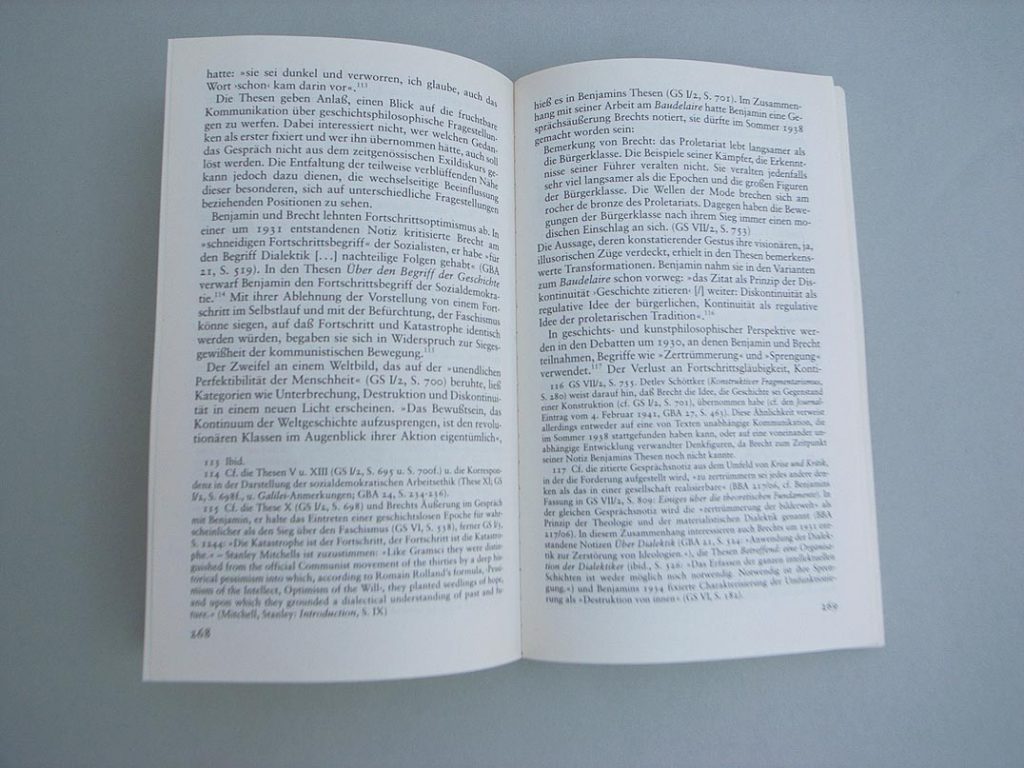
The Suhrkamp edition, with notes in an undifferentiated sequence.
The main initiative of the Libris edition is to extract the text’s notes – the informative, discursive notes, rather than the references to literature – and place them on the pages of the main text. For these footnotes, symbols (star, dagger, and so on) are used, rather than numbers.
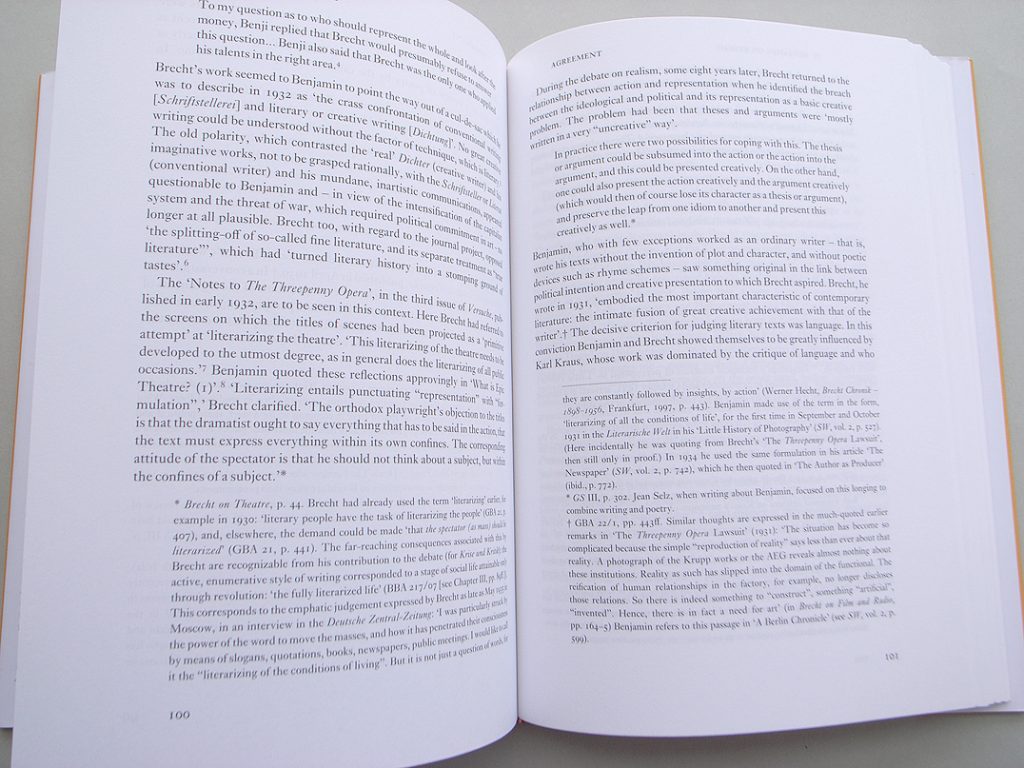
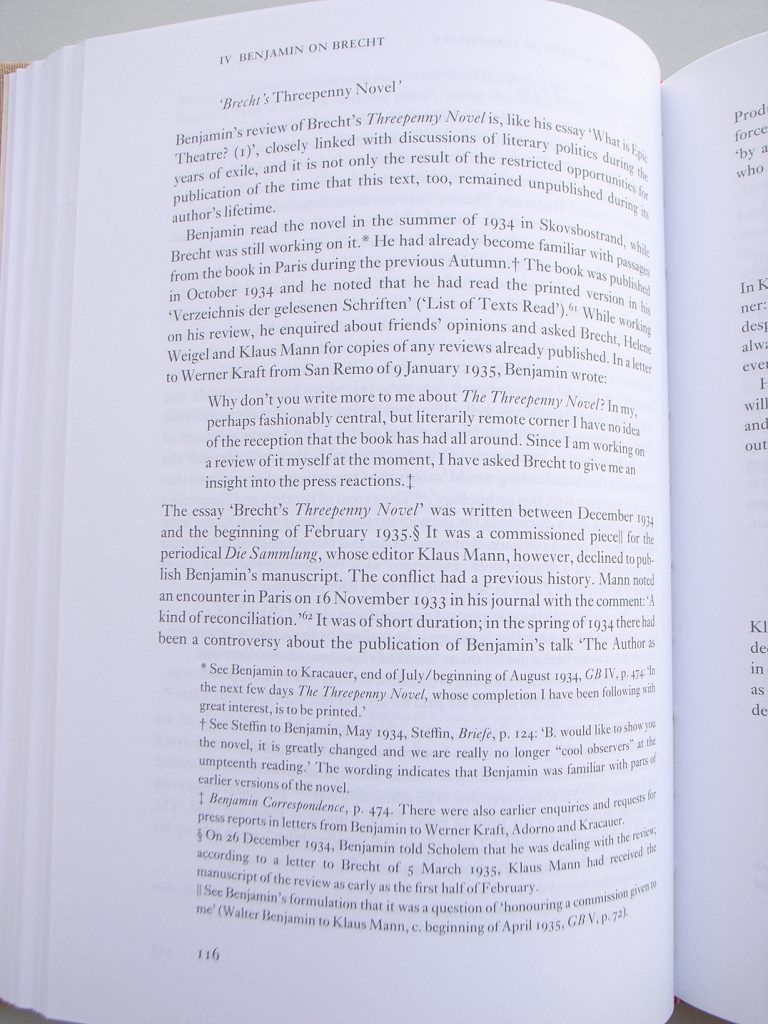
Pages from the Libris edition.
At the back of the book the numbered notes giving just sources are presented in a two-column array. An invaluable kindness to the reader is the headline indication of pages in the main text to which these notes refer.
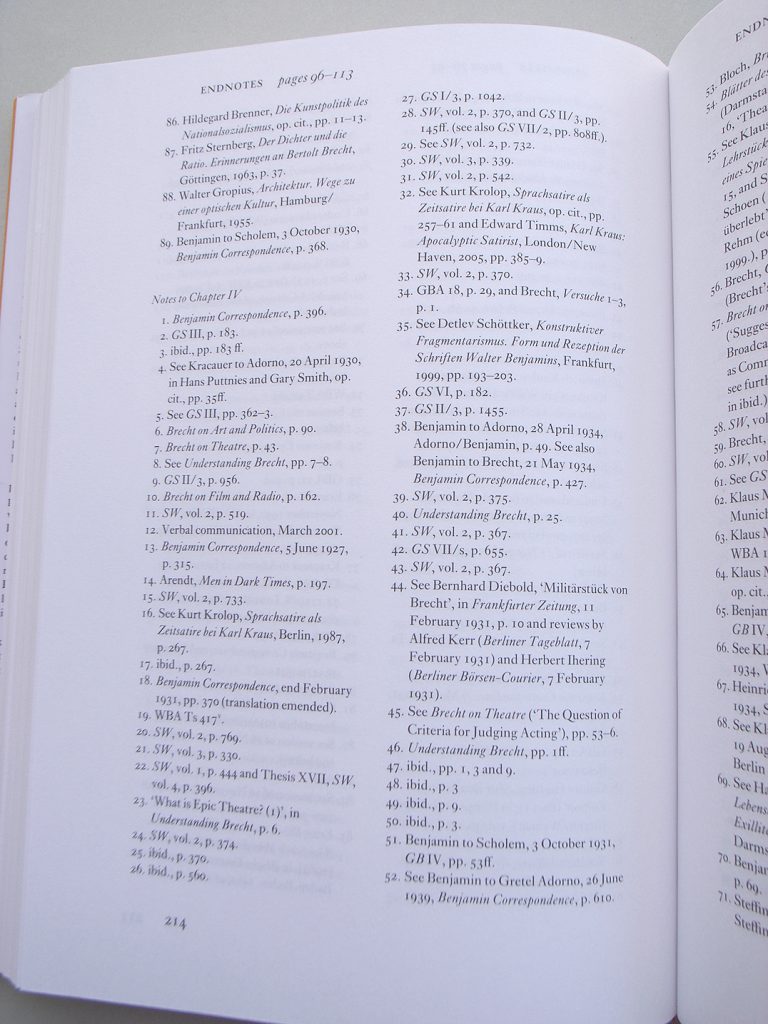
The index adds quite a lot: the dates of people mentioned in the book and a description of who they were. The indexer is Christine Shuttleworth, who also made the very natural and unassuming translation of the whole work into English. A note at the head of the index explains that “Names found in standard works of reference and those of contemporary scholars, editors, etc., are not annotated.” This seems wise and avoids the patronizing effect of explaining who Goethe was. But it brings some problems: the very obscure people who are unknown to standard works of reference are not annotated either – they are too obscure for that, and too obscure also for the industrious makers of this edition. And it must have been hard to decide not to annotate the name of T.W. Adorno, and yet annotate that of Gershom Scholem.
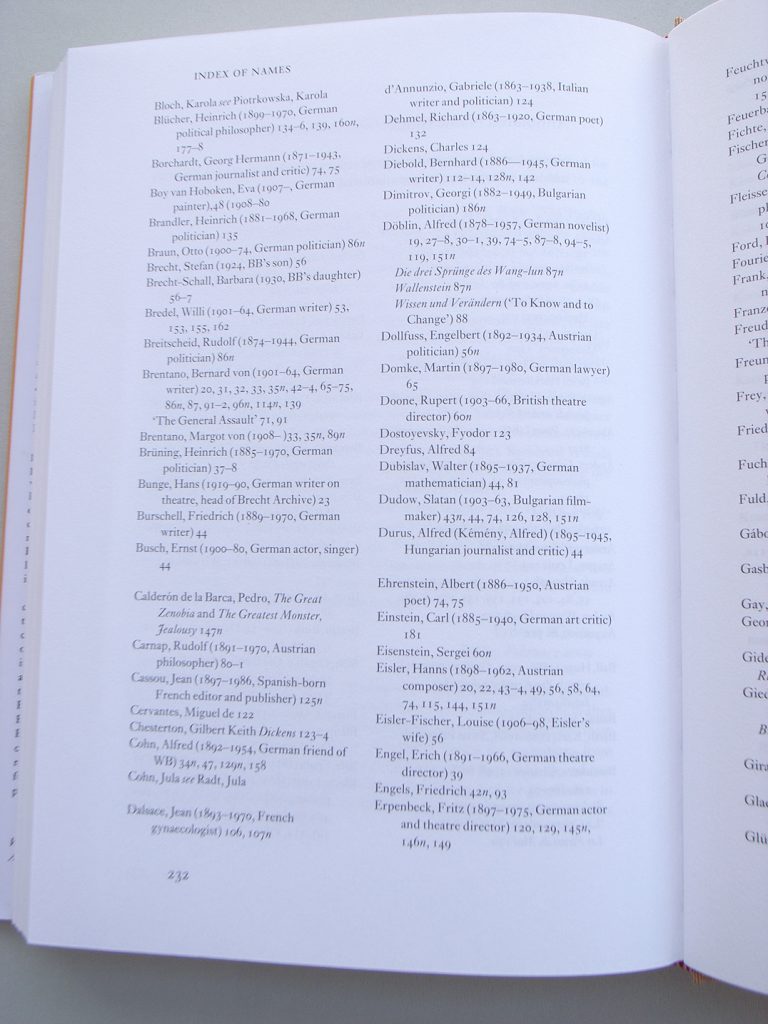
Overall, the edition takes the view that a translation really must translate into readable, available language. Brecht’s and Benjamin’s words are put into good English, where possible using published translations. But the Libris edition doesn’t commit the mistake of translating titles of books and journals into English, where no such translation has ever been published. (This was one of the muddles perpetrated by the Verso’s Walter Benjamin’s archive.)
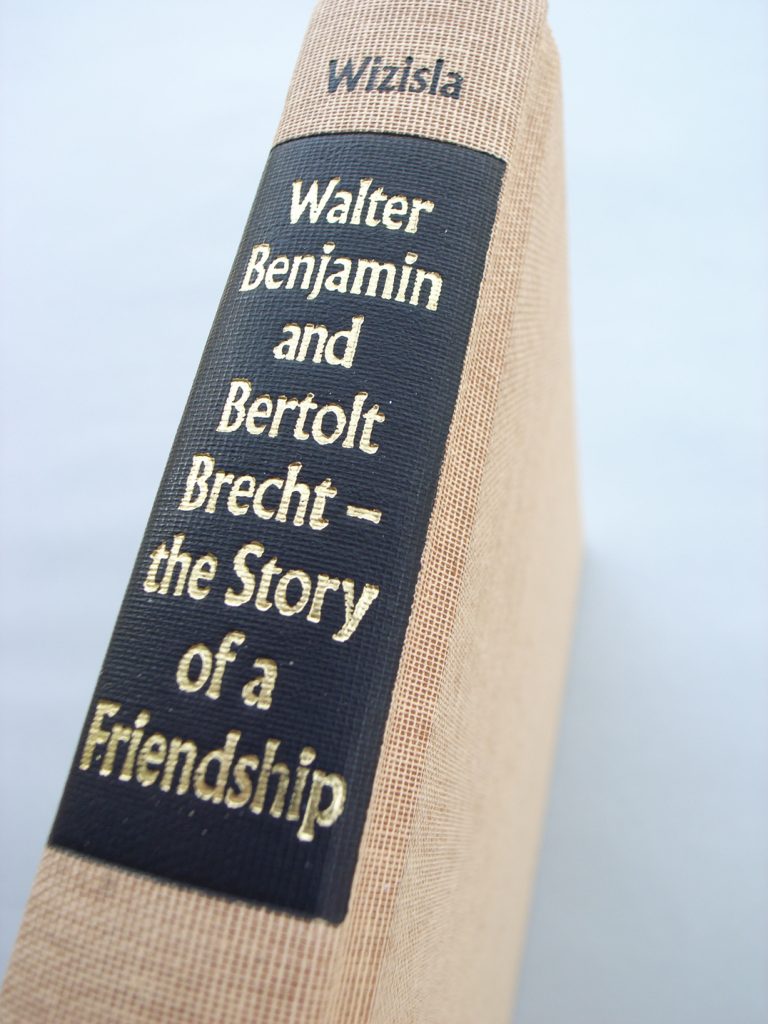
As a physical object, Walter Benjamin and Bertolt Brecht strives to live up to the standard of any decent book of the 1930s. The case is covered in proper cloth that carries the memory of German book production.

The binding is better done than with most Anglo-American books of our times: the sections are sewn, though in 32s rather than 16s. The hot-melt glueing is a let-down.
In summary: in the best-designed books competitions that happen in various countries each year, there are never any prizes for the best-edited book. If there were, we would nominate this one from Libris.
Robin Kinross